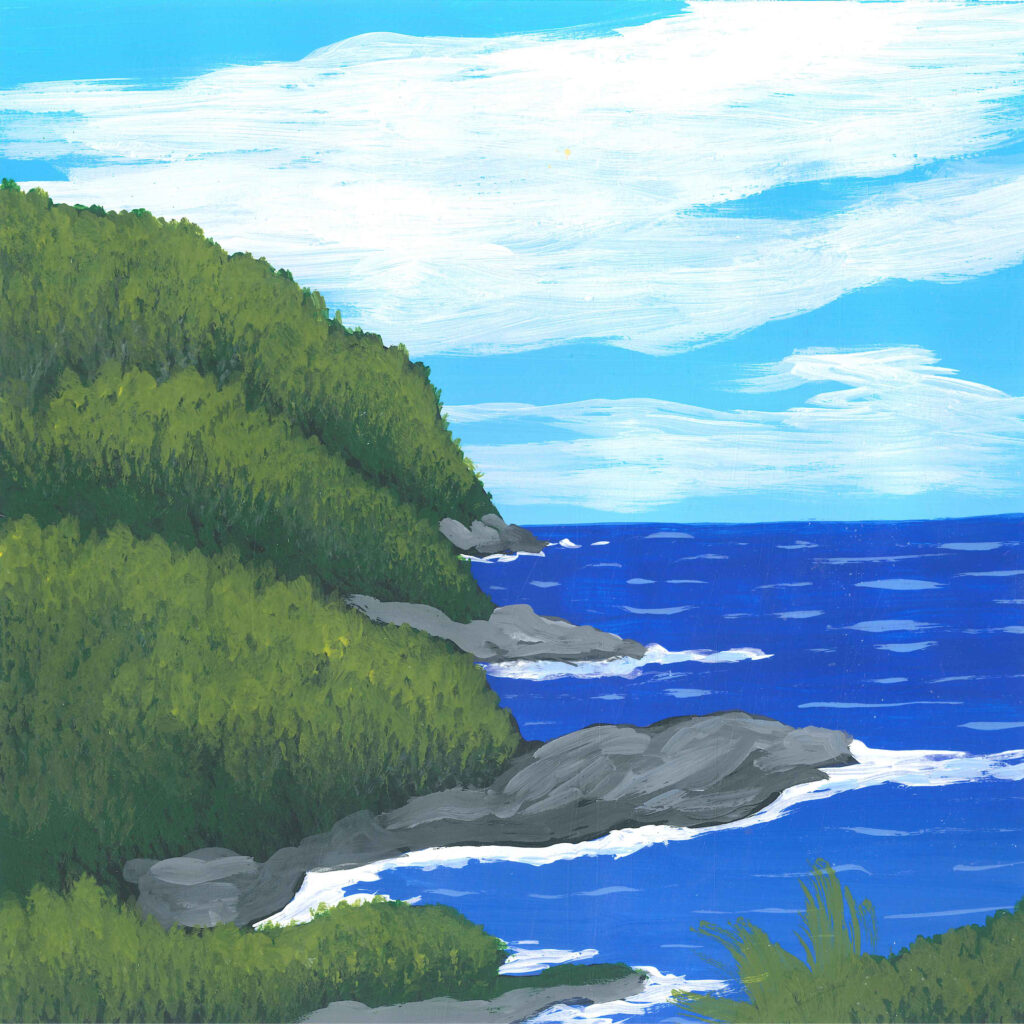
Anti-anxiety sounds, shorebird migration, & engaging the majority | Newsletter #45
Aloha*, friend. 👋🏼
Can natural sounds be used to reduce anxiety and promote sleep? Can plotting shorebirds’ migration routes contribute to efforts to save these endangered species? And how can the majority of people be encouraged to take action against the multiple overlapping, interconnected global crises we currently face?
Read on.
*A common Hawaiian greeting.
Soundscape of the week
🌏 ‘Evening Birds near the Ocean’:
“Just beyond the beach and behind a high drift of sandy rocks, the ocean quiets down. The presence of crashing waves on the Hawaiian coast is reduced and a lower rumble becomes more audible. The evening birdsong cuts through this low rumble”…
With the rushing susurration of the surf complemented by the twittering of birdsong, two especially relaxing natural sounds are combined in one soundscape. Recorded by Nick McMahan in Haleakalā National Park on the island of Maui, his recommended charity is Haleakalā Conservancy, an organization tasked with raising funds in support of the park’s programs. Current priority projects include protecting native birds from non-native predators such as the rats and mongooses which have been introduced onto the islands of Hawaii. You can donate to the Conservancy here.
Articles and essays
💤 “According to a South Korean study, natural sounds have also been mooted as an effective way to relieve stress in everyday life. It found that, ‘When participants heard nature sounds, they felt comfortable, relaxed, and natural, and the negative mood state was lower, while the positive mood state was higher than [when participants heard] urban sound.’”
Continuing our series of articles about the benefits of natural soundscapes for sleep, ‘Nature Sounds to Reduce Anxiety and Promote Sleep’ includes a playlist of earth.fm recordings, ranging from rainfall in the Namib Desert to cuckoos in Estonia and a river flowing through a Brazilian forest. The article also includes a list of misophonic sounds which can trigger anxiety: culprits to avoid include mosquitos, snorers, loud eaters, gum-chewers, and crying babies. Fortunately, you won’t find these in our recordings!
🎶 7,800 miles (12,600 km) away from Hawaii, the latest episode of earth.fm’s Wind Is the Original Radio podcast showcases the sounds of a very different range of birdsong, in Rijeka, Croatia. This spectacularly dense and diverse evening chorus, recorded by Ivo Vicic, demonstrates the beauty of familiar European species, proving that the ‘commonness’ of the common cuckoo (Cuculus canorus), common chaffinch (Fringilla coelebs), common blackbird (Turdus merula), and common wood pigeon (Columba palumbus) in no way negates the beauty of their songs.
Other installments of Wind Is the Original Radio are available on Apple and Google podcasts, Spotify, and Stitcher, with new episodes released every Friday.

From the extended community
🗺️ ‘Flyways – Ancient Aerial Songlines’, an episode of The Saltwater Songlines Podcast, features presenter Narelle Carter-Quinlan in conversation with Randall Wood. Wood has directed a documentary, Flyways: The Untold Journey of Migratory Shore Birds, which “follows three critically endangered migratory shorebird species”, plotting their immemorial migration routes across the planet, and gives a platform to “the scientists and international lawyers who are collaborating to save them”. (See the trailer here.)
The discussion takes in flyways’ status as more-than-human heritage; the way in which their internationality encourages us to consider custodianship which transcends national boundaries; the reasons for the challenges which these species are facing, and methods of conservation (which are being impacted by the Russian invasion of Ukraine); and the immensity of the threat which biodiversity loss threatens us with, which is more immediate even than that posed by war or the climate crisis.
🤍 Drawing on the 11th annual report of figures gathered by the Global Witness NGO, a sobering article by the UK Guardian – ‘Environmental Activists Killed at a Rate of One Every Other Day in 2022’ – shows the lethal consequences faced by “defenders working on land or environmental issues”.
The industries most connected to these killings are mining and other extractives, agribusiness, and logging. Almost 90% of these murders occurred in Latin America (primarily Colombia), with 20% of the total taking place in the Amazon rainforest. Other substantial numbers were recorded in the Philippines, India, and the Democratic Republic of the Congo. However, Global Witness notes that its figures are “likely to be an underestimate […] [and] should be considered as only a partial picture of the extent of killings of environmental and land defenders across the world”.
A total of at least 1,910 environmental defenders are known to have been killed since 2012.
💚 “Community climate action and transformative adaptation has huge potential as a leverage point because it’s a way of waking people up. When people realise that it’s not just about 2050 or 2100, it’s about building resilience […] for shit that is coming at fans […] right now with our crazy weather. Then that wakes people up more generally and also therefore helps on the agendas of climate mitigation and biodiversity […]. It’s not enough to just expect politicians or politics to change everything from the top down. It just isn’t going to happen that way. We’re going to have to get a lot of kind of ground upwards groundswell kind of changing through the institutions before we get enough political leadership.”
In ‘Inspiring the Climate Majority’, an episode of the Accidental Gods podcast, presenter Manda Scott enlists Rupert Read, former associate professor of Philosophy at the University of East Anglia and former spokesperson and political strategist for Extinction Rebellion, now co-leader of the Climate Majority Project, which “work[s] to accelerate citizen climate action towards system change, and help a mass movement to see its own power”. Together, in a dense and insightful conversation, they attempt to answer the question, “What can we do to unite the overwhelming majority of people who understand that we’re on the edge of the cliff and want to *do something* but don’t know what or how?”
👉 Follow us on Twitter (“X”?) for a daily dose of nature-sound inspiration!
How to support earth.fm
All 600+ of our curated, immersive soundscapes are free to listen to, but if you want to help us grow new forests, please become a supporter!
There are three options available, and you will also be able to favorite recordings, create and share playlists, and many other perks – plus a big surprise is coming exclusively to members in the next few weeks!
Until next time, we wish you a regenerative week. 🙏
With best wishes,
Neil and Team earth.fm
Reach out on hello@earth.fm 👋
Forward this newsletter to anyone who would appreciate it ✉️
Join the conversation with the Earth.fm community 🤝
Submit a recording 🎤
Follow us on Twitter. Instagram and YouTube 💻
Listen to nature sounds in your browser by installing our free extension 🎧
Earth.fm is a completely free streaming service of 800+ nature sounds from around the world, offering natural soundscapes and guided meditations for people who wish to listen to nature, relax, and become more connected.
Check out our recordings of nature ambience from sound recordists and artists spanning the globe, our thematic playlists of immersive soundscapes and our Wind Is the Original Radio podcast.
You can join the earth.fm family by signing up for our newsletter of weekly inspiration for your precious ears, or become a member and not only enjoy extra earth.fm features and goodies but help us grow new forests on our beloved planet.
